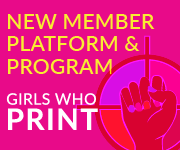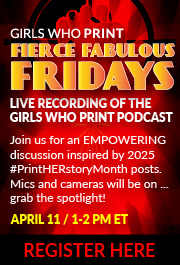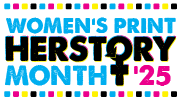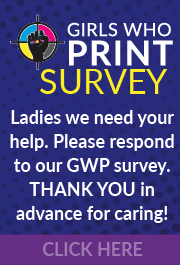
Guest Post by Raquel Griffiths
Many of us in the print industry have seen jobs slowly dissipate as the market for print has shrunk, responsibilities rolled into other positions, and, well, the pandemic which boosted the digital deliverable market.
It goes without saying that any Print Production Manager worth their salt is detailed, organized, at least 2-steps ahead of potential issues, always has a backup plan, and remains calm under pressure. Hmmm, those traits seem like they would be useful elsewhere, don’t they? So, in this shrinking job market, what’s a PPM to do?
Pivot. These skills can be applied to other areas more readily than you might think.
Project Managers in a creative department use the same skill set. In fact, many of the responsibilities are the same, but cover the part of the project up until it releases to the PPM. Estimates, schedules, keeping people on track. Even reviewing proofs. Project Manager roles within print companies could be a good fit. Print Sales needs reps that really understand the process on both sides of the fence. Brand Managers, Product Managers, Producers, and Media Buyers are all examples of careers that utilize similar skill sets. Sure, there’s new technology to learn but we don’t let that slow us down, do we?
Knowing the difference between embossing and debossing turns into knowing the difference between subtitles and closed captioning. Knowing that to get the blue just right you need to do a double-hit, but the first hit will be just an 80% screen turns into knowing that an anchor tag needs to be added to the website for the URL to hit a specific spot on the page instead of the page in general.
Now you are thinking “OK, I can do this. How do I start?”
Chances are you already know someone that has made the leap to another role. Network. Reach out to your contacts. A recommendation goes a long way. But also, apply for the jobs that sound interesting to you. Tweak your resume for the role you want. We all know AI scans the keywords. Start there. A cover letter should pique their interest enough to talk to you. Use that letter to give highlights of what you can do and have done. But save some for the interview. That is where to talk in-depth about how your skills are transferable and what you can bring to the role – especially in a way that the employer may not have been considering. Know that some people are more visionary than others and not everyone will see it. That is ok and it is not a reflection of you.
Experts often recommend that you apply for the job you are interested in even if you don’t meet all the requirements or have all the experience. Especially if your skills are transferable. But really, if you already have all the knowledge, what are you going to learn on the job? Each job should leave you room to grow.
At our core, we are creative problem solvers. Idea makers. Caretakers. Taskmasters. All these jobs and many others require those same skills.
What have we got to lose? Go for it.
Raquel Griffiths Sr. Director, Project Management, Activations / Former Print Production Manager, Creative Problem Solver
 Raquel Griffiths has spent most of her career working with creative teams in one capacity or another. Production artist, designer, art director, studio manager… but really found her niche as a Print Production Manager. Pulling everyone’s contributions together, making sure it was executed appropriately, planning, and problem-solving.
Raquel Griffiths has spent most of her career working with creative teams in one capacity or another. Production artist, designer, art director, studio manager… but really found her niche as a Print Production Manager. Pulling everyone’s contributions together, making sure it was executed appropriately, planning, and problem-solving.
Learning to pivot when the market was shrinking, Raquel re-purposed those skills into teaching classes to young designers about the essentials of designing for print, mentoring others in the industry, and starting a business focused on experiential print. Landing in Project Management, Raquel continues to mentor the next generation(s), while also working towards better diversity, equity, and inclusion in the workplace and is a champion for women’s rights.





